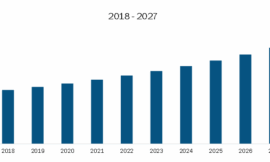Intermittent fasting, a popular dietary trend that cycles between periods of eating and fasting, has garnered attention for its potential benefits, including weight loss and improved metabolic health. However, a recent study suggests that this practice could have an unintended side effect: slowing down hair growth.
The Study and Its Findings
The study, published in the Journal of Clinical Nutrition, investigated the effects of intermittent fasting on various bodily processes, including hair growth. Researchers focused on the hormonal and metabolic changes that occur during fasting periods, hypothesizing that these changes might impact hair follicle activity.
While intermittent fasting has been shown to improve overall health by reducing inflammation and promoting cellular repair, the study’s findings point to a possible downside in terms of hair health. Specifically, the research indicated that fasting could alter hormone levels, particularly those related to stress and metabolism, which may interfere with the hair growth cycle.
How Intermittent Fasting Affects Hair Growth
Hair growth occurs in cycles, with three main phases: anagen (growth), catagen (transition), and telogen (rest). The anagen phase is the longest and most crucial for hair production. Factors like hormones, nutrition, and stress can influence how long hair remains in this active growth phase.
Intermittent fasting, particularly prolonged or extreme fasting, can trigger a state of stress in the body. This stress increases the production of cortisol, a hormone associated with the “fight or flight” response. Elevated cortisol levels can lead to telogen effluvium, a condition where hair prematurely enters the resting phase and falls out.
Additionally, fasting may reduce the intake of essential nutrients necessary for healthy hair growth. Since hair follicles require consistent nourishment, prolonged fasting or inadequate nutrition during eating windows could limit the nutrients needed for optimal hair production.
What This Means for Intermittent Fasters
While the study does not suggest that intermittent fasting directly causes hair loss, it raises concerns for those who are experiencing significant changes in their diet and lifestyle. Those practicing intermittent fasting should be mindful of the potential effects on their hair health, especially if they notice thinning or slow growth.
Experts recommend that individuals who choose intermittent fasting ensure they are still getting enough nutrients during eating periods, including vitamins and minerals essential for hair health, such as biotin, vitamin D, zinc, and iron. Maintaining a balanced diet with sufficient calories and protein is key to supporting both overall health and hair growth.
Conclusion
Though intermittent fasting has numerous health benefits, including improved metabolic function and potential weight loss, it is important to recognize its potential impact on hair growth. If you’re considering intermittent fasting or are already practicing it, be aware of its possible effects on your hair and ensure you’re maintaining a well-rounded, nutrient-rich diet to support optimal hair health.



